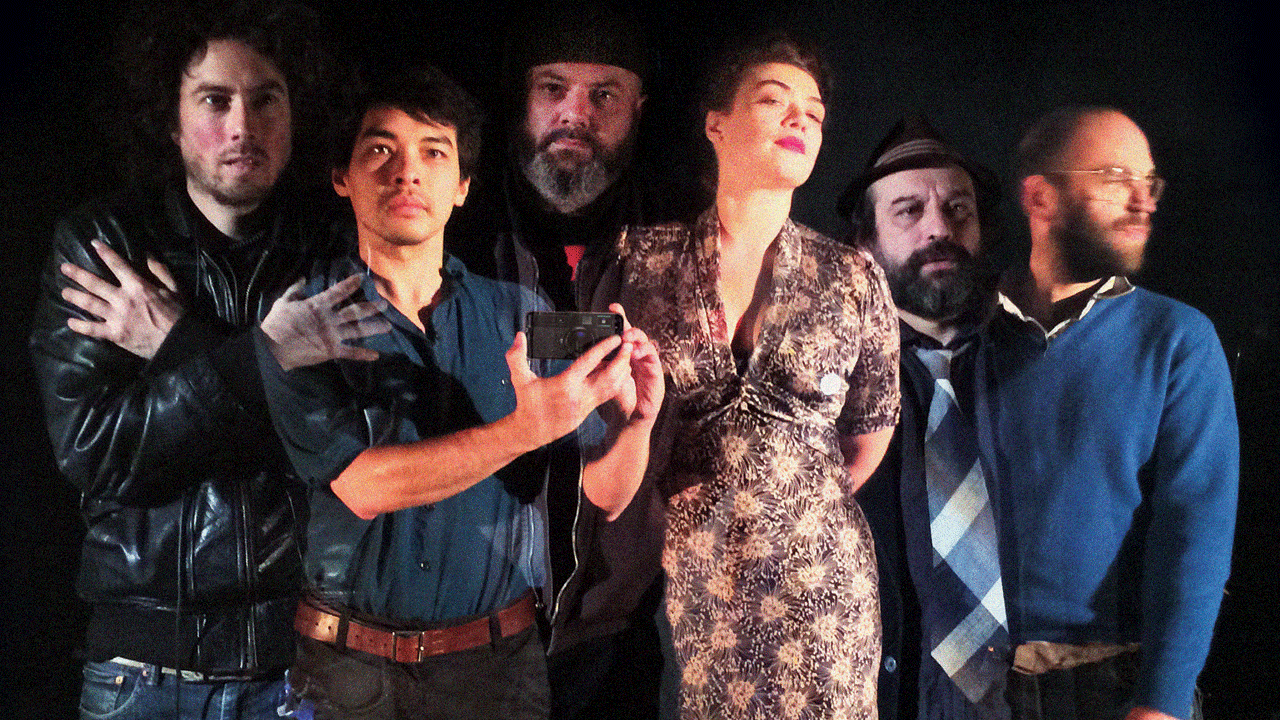Necessity is the mother of invention. And that certainly seems to be the case for Moriarty, a band formed in the mid-90s by a gang of friends from an American school in Paris, who grew up as much influenced by US blues, rock and punk as the Francophone folk-pop they heard around them.
After years spent jamming in a basement, they graduated to gigging with singer Rosemary Standley in the early 2000s, but a Spinal Tap- esque ability to lose drummers meant they had to perfect a more acoustic approach, resulting in a jug band melting pot of a sound.
Having felt like outsiders from childhood, it was natural that they would do things a little differently, and after naming themselves after Jack Kerouac’s maverick antihero Dean Moriarty from On The Road, they gained a similarly unpredictable reputation, playing prisons and mental institutions.
“Singing in English in France, everyone said it would never work,” says guitarist Arthur Gillette, “because of the quotas of course [40 per cent of music on French radio must be French- language] and we would also go to festivals and people would say it’s not loud enough. So we’re used to being outcasts, and we like to keep doing different things. It keeps us alive as a band.”
Their 2007 album, Gee Whiz But This Is A Lonesome Town earned them a loyal following in Europe, but once again, they found that live audiences demanded broader strokes in the music.
“We needed a little more groove to convey the music live.”
Their three albums since have sacrificed none of the subtleties within their sound though, and their new album Epitaph offsets the double bass stomp and guitar twang of When I Ride and the languid folk-funk of Long Live The (D)Evil with the slow-building piano-laced foreboding of History Of Violence.
Central to Moriarty’s sound is Rosemary Standley’s resonant voice that recalls Karen Dalton and Joanna Newsom. But then the plot thickens through the injection of wrong-footing rhythms and ear-pricking instrumentation.
“Our music is like an iceberg,” says Gillette. “What people see and hear on the surface is one thing, but most of it is under the water and it’s more complicated. We use a National steel guitar made in 1928, we have a harmonica player, and a double bass player who loves Willie Dixon. But even if we have a lot of blues roots, we always try to take detours and not do it in the orthodox, purist way, because the fact is we’re just not proficient enough to emulate one particular kind of music. We write together and we make it up as we go along, so all sorts of stuff gets in there!”
What’s the French for happy accident? That’s the size of it.
INFLUENCES
Arthur Gillette: “I used to spend hours and hours just working and listening to Mississippi Fred McDowell, and even went to North Mississippi to try and learn from some of those guys who are the last ones to know how to play that way. I always like to keep a bit of that simple blues in there.”

